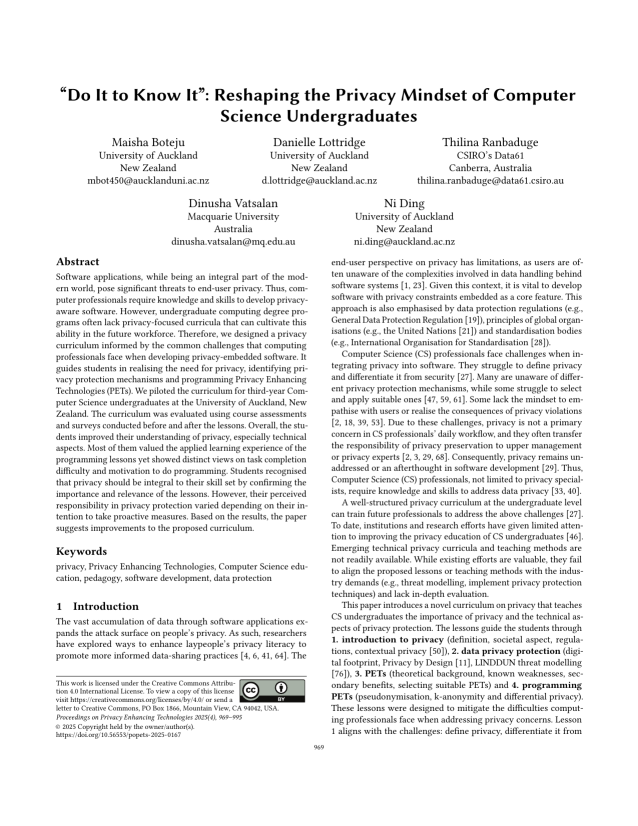"Do It to Know It": Reshaping the Privacy Mindset of Computer Science Undergraduates
Authors: Maisha Boteju (University of Auckland, New Zealand), Danielle Lottridge (University of Auckland, New Zealand), Thilina Ranbaduge (CSIRO's Data61, Canberra, Australia), Dinusha Vatsalan (Macquarie University, Australia), Ni Ding (University of Auckland, New Zealand)
Volume: 2025
Issue: 4
Pages: 969–995
DOI: https://doi.org/10.56553/popets-2025-0167
Artifact: Available, Functional
Abstract: Software applications, while being an integral part of the modern world, pose significant threats to end-user privacy. Thus, computer professionals require knowledge and skills to develop privacy-aware software. However, undergraduate computing degree programs often lack privacy-focused curricula that can cultivate this ability in the future workforce. Therefore, we designed a privacy curriculum informed by the common challenges that computing professionals face when developing privacy-embedded software. It guides students in realising the need for privacy, identifying privacy protection mechanisms and programming Privacy Enhancing Technologies (PETs). We piloted the curriculum for third-year Computer Science undergraduates at the University of Auckland, New Zealand. The curriculum was evaluated using course assessments and surveys conducted before and after the lessons. Overall, the students improved their understanding of privacy, especially technical aspects. Most of them valued the applied learning experience of the programming lessons yet showed distinct views on task completion difficulty and motivation to do programming. Students recognised that privacy should be integral to their skill set by confirming the importance and relevance of the lessons. However, their perceived responsibility in privacy protection varied depending on their intention to take proactive measures. Based on the results, the paper suggests improvements to the proposed curriculum.
Keywords: privacy, Privacy Enhancing Technologies, Computer Science education, pedagogy, privacy-aware software development
Copyright in PoPETs articles are held by their authors. This article is published under a Creative Commons Attribution 4.0 license.

